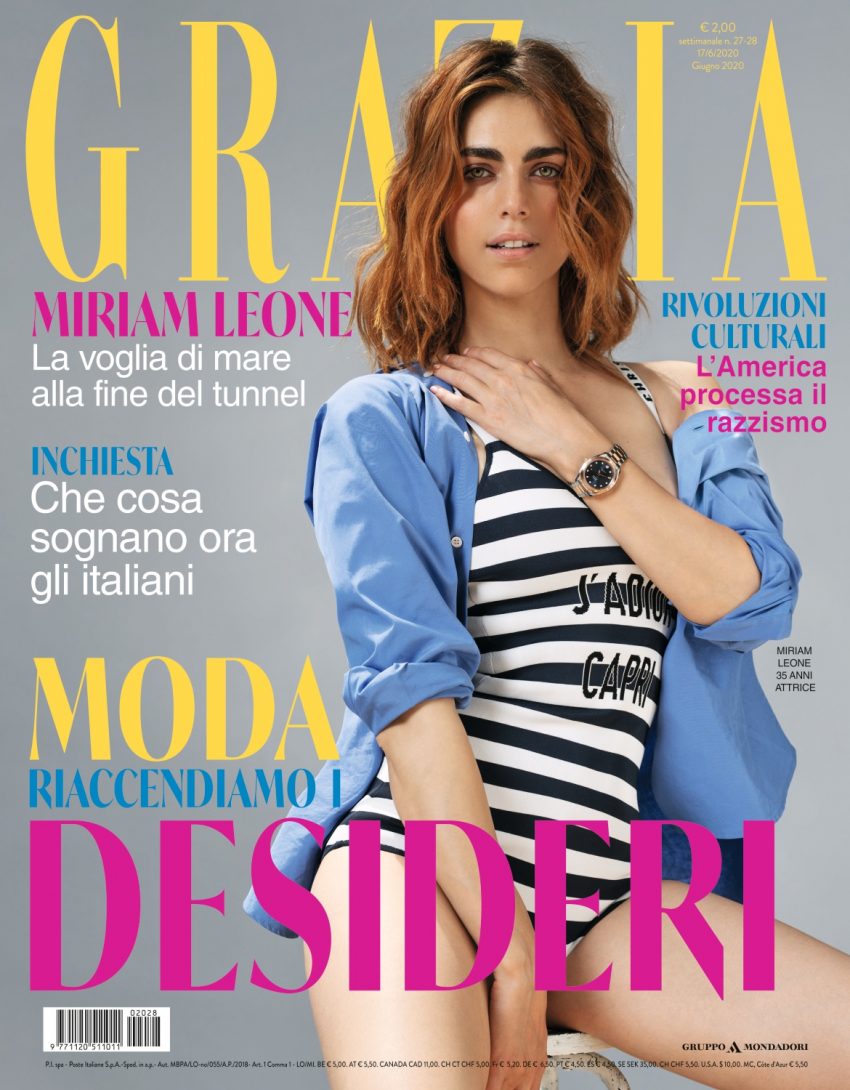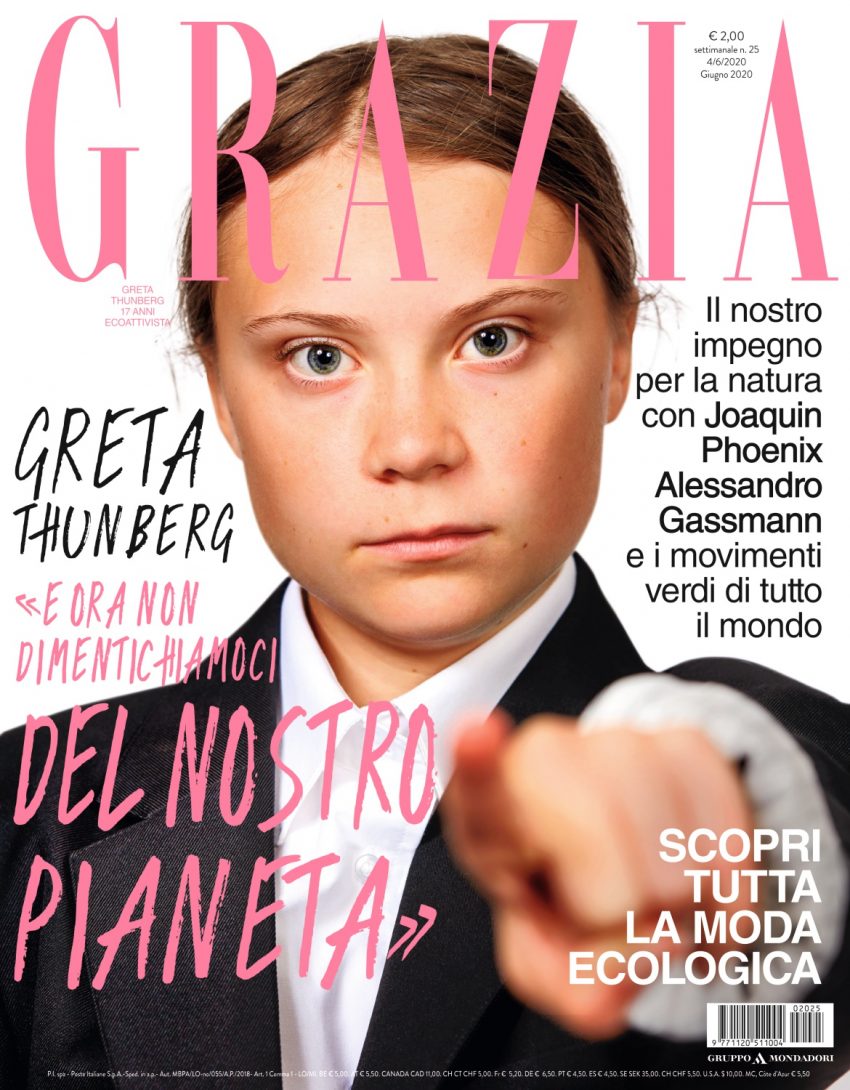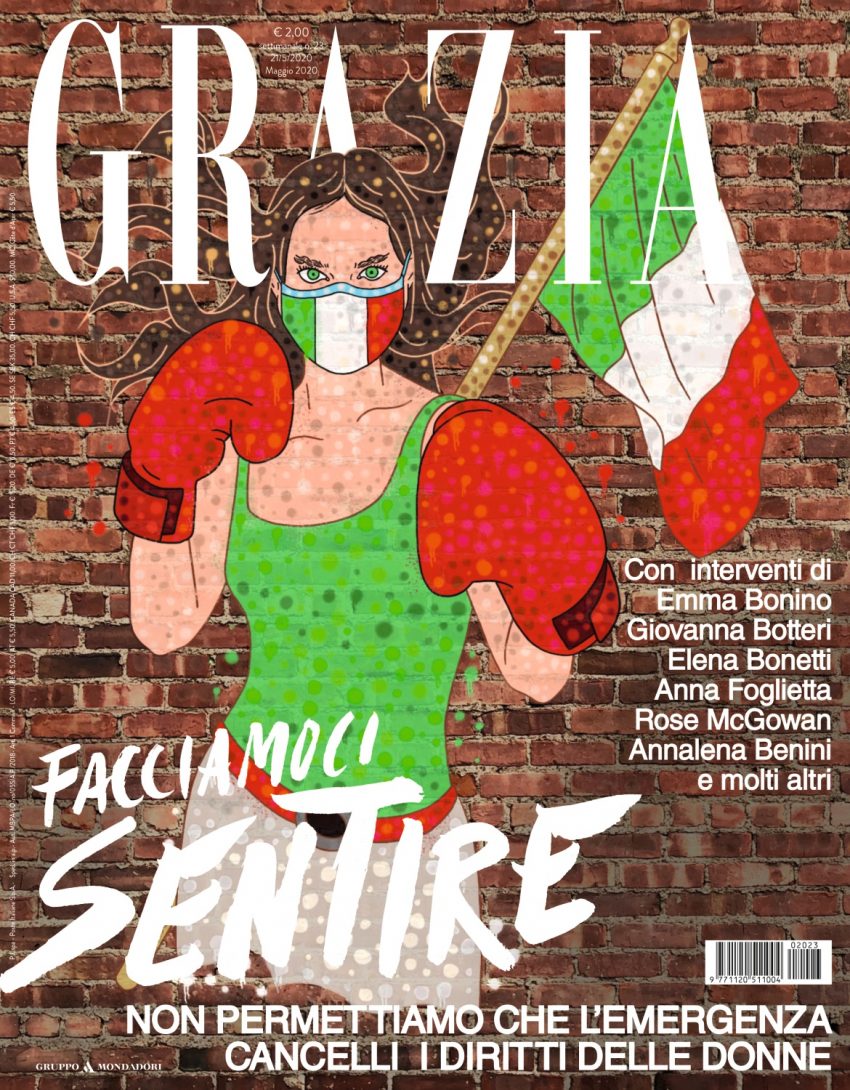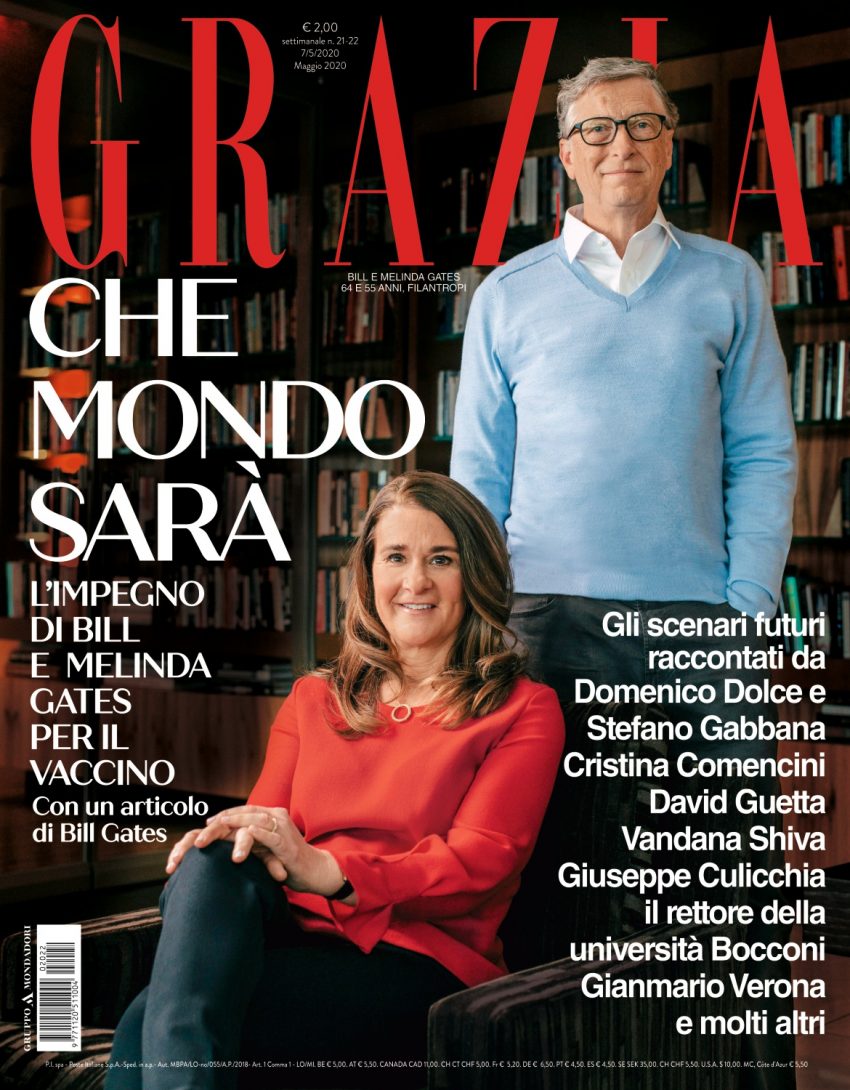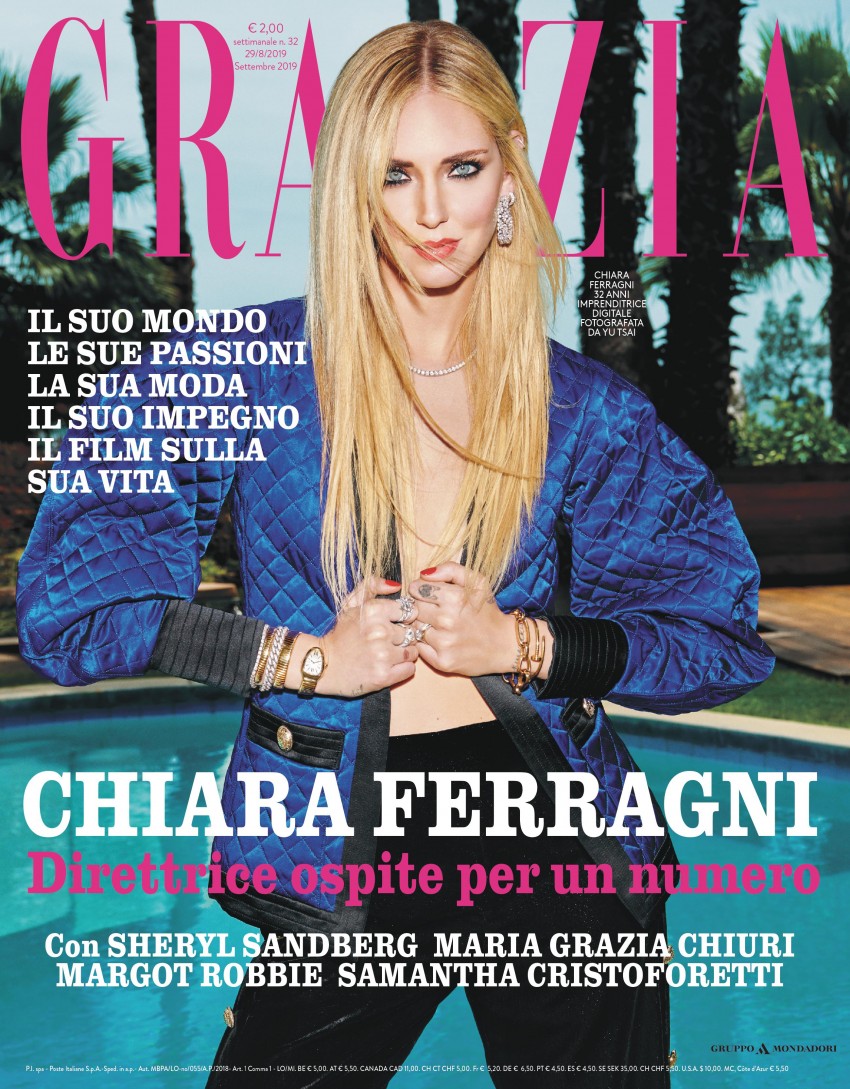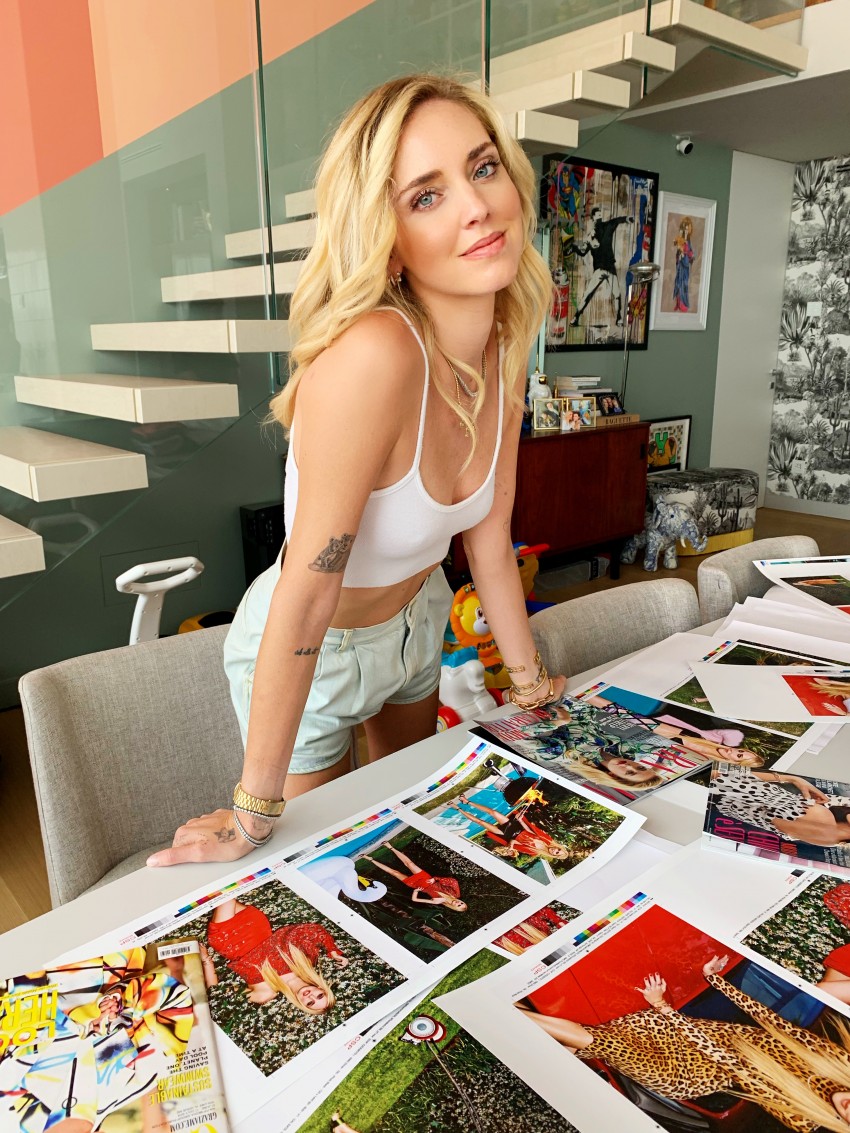Grazia launches a special Issue: Riaccendiamo i desideri
What do Italians most desire after months of lockdown? The magazine edited by Silvia Grilli has carried out an exclusive survey
A project that underlines the strengths of a brand that reaches its audience in a circular and complete way: from the magazine to social media, and from the web site to digital out of home circuit
Grazia, the leading 100% Italian fashion brand, with 20 international editions, is on newsstands this week with a special issue: Riaccendiamo i desideri (Rekindling desires).
What are Italians dreaming about after the months of the coronavirus emergency? Thanks to an exclusive survey and in the words of influential personalities, the magazine edited by Silvia Grilli reveals what our desires and ambitions for this summer are.
“During the lockdown, we only wanted one thing: to be safe and to protect our families. The shops were closed, the restaurants too, we couldn’t travel, not even to go and visit our grandparents. All of our normal freedoms were sacrificed on the higher altar of safety. Then, slowly, Italy started to re-open almost everything. With many restrictive measures and precautions, but we could g back to visiting relatives and friends, to travel and go shopping, we will soon also be able to dance again, in the open air. And Italians have discovered that they are happy to meet again. In fact, this special issue of Grazia is dedicated to our desires and the joy in rediscovering them. We are not all the same, thank heavens. There are those who during the lockdown have reconfigured their priorities, discovering that they want another life. Others, meanwhile, couldn’t wait to pick up where they left off. Some have written that the coronavirus has made us better. I don’t think so. However, for sue it has made us understand better who we are and what we want,” writes the editor Silvia Grilli in her editorial.
In this special issue Miriam Leone confides that she spent the lockdown reflecting on her ambitions and the possibility of a different pace of life. The magazine also met Diego Della Valle, president of the Tod’s group, who outlines his vision for the months we can expect after the emergency and talks about the opportunities to seize in order to give a leg up to Italian creativity. And, naturally, there are voices from politics: the Minister for Transport and Infrastructure, Paola De Micheli, talks about the hope required to give new life to Italy.
And among the desires is a new way of living at home, with the rediscovery of intimacy during the pandemic: so emerging designers tell Grazia about new projects. And, above all, among the big desires there is fashion, which, in this week’s Grazia, focuses more than ever on imagination and the joy of living.
With this new project Grazia further enhances the path it has taken during the lockdown and confirms its role as a unique, multichannel brand, able to reach its audience with a complete and circular communication: dal magazine ai social network, from the magazine to social media, and from the web site to the Mediamond DOOH circuit
Grazia special issues
With the Torneremo ad Abbracciarci issue and initiative in March, Grazia wanted to underline a virtual embrace between China and Italy: not merely hope for a new spring, but also a symbol of sisterhood between populations. A special issue which, in the midst of the emergency, brought together testimonies of positivity and energy, of human warmth and strength, of hope and gratitude; an issue that gave space to both celebrities and readers on social media and gathered messages from the editors of the magazine’s 20 international editions to Italy and the world. But Grazia is also fashion: and on the pages of Torneremo ad abbracciarci Grazia China dedicated a photo shoot to Italy with the wish that the country would quickly overcome the difficult moment it was going through. Along with digital operations, the issue recorded 50,000 downloads and +70% in copies, compared with the previous issue.
Subsequently, in May, it was #Facciamocisentire, a campaign launched on social media to ensure that the emergency would not undermine women’s rights campagna. Numerous personalities signed up to the campaign, including faces from the word of fashion, politics, cinema and entertainment, and, in just a few days, achieving a reach of 75 million users.
With the recent Non dimentichiamoci del Pianeta issue, Grazia brought together experts and activists so that the battle against global warming doesn’t fall into second place, given that, after Covid-19, countries everywhere have been reassessing their priorities.
Instagram live
The very popular Instagram live events have been, and continue to be very successful, in which the editor of Grazia Silvia Grilli interviews personalities from the cinema and fashion, including cover stars such as Elisa Maino (with an average of 5000 followers linked during the live show).
DOOH Mediamond
The desire to get back to normal will also give rise to an editorial initiative that will involve selected partners: #iovorrei (I would like). An ode to joy and personal gratification that also takes in the finally rediscovered possibility to get back in touch with our favourite brands. And in order to interpret this collective desire to get back into the world Grazia will extend the visibility of the initiative across the territory, close to some of the most iconic sites of Milan, using the Mediamond DOOH circuit. Four imposing led walls that are part of the company’s external visibility circuit will feature content related to the initiative, in other central areas of the city: Gae Aulenti, Tortona, San Babila and Garibaldi. Coverage of the city of Milan confirms the brand’s capacity to be close to the community during the rediscovery of the territory and of shopping.
